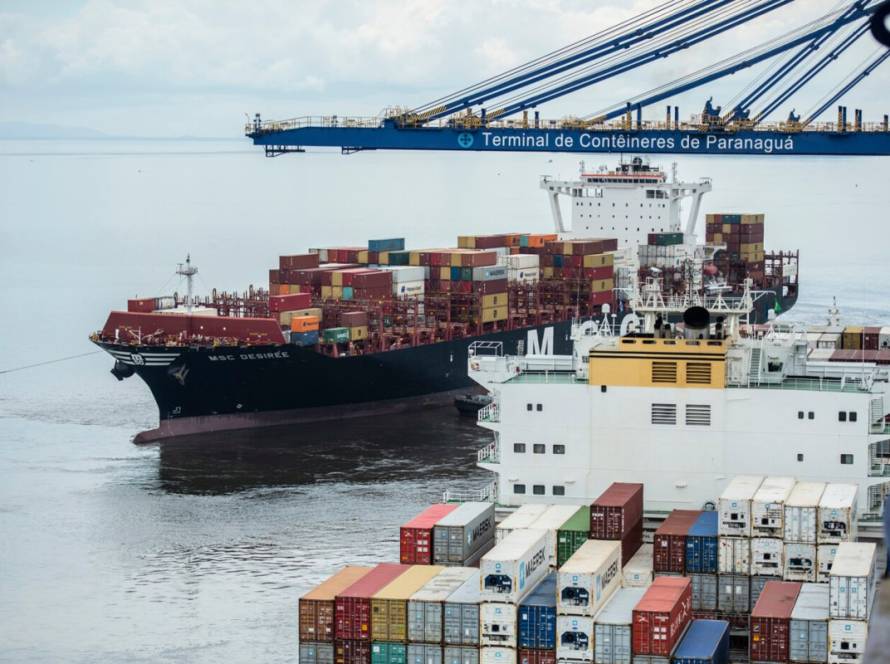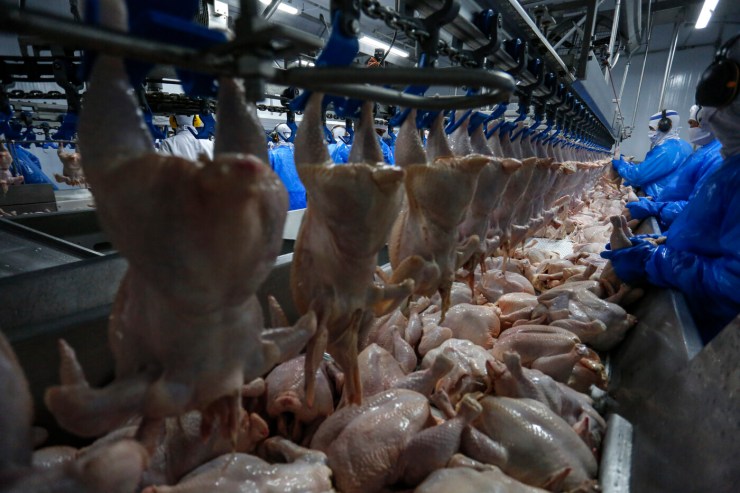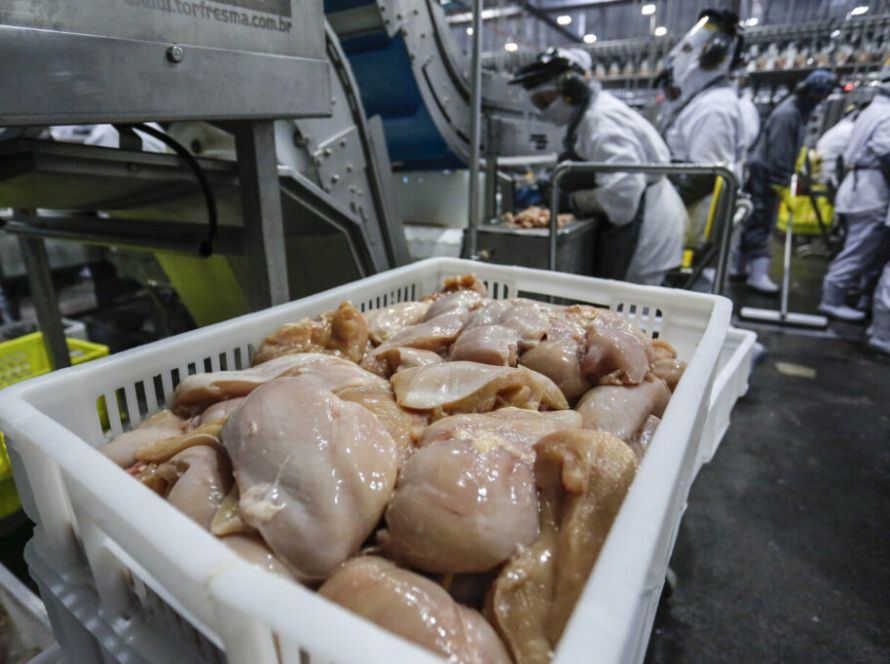In 2024, agribusiness sales abroad in Rio Grande do Sul reached, in nominal terms, without considering inflation, the third best result in the historical series that began in 1997, with a total of US$15.8 billion. The final value of exports was reinforced in the last quarter of the year, which presented the best result in the series, with US$15.7 billion in sales, an increase of 13.8% compared to the fourth quarter of 2023.

Photo: Disclosure/OP Rural
When comparing the final figures for last year with 2023, the year in which agribusiness exports had the best result in history, the sector's external sales fell by 2.4%, a reduction in the exported value of US$$ 395.9 million. The results released last Wednesday (26) in the Rio Grande do Sul Agribusiness Indicators bulletin indicate that agribusiness represented 72.2% of the State's general exports in 2024. The publication is produced by the Department of Economics and Statistics, linked to the Secretariat of Planning, Governance and Management (DEE/SPGG).
The document prepared by DEE/SPGG researcher Sérgio Leusin Júnior shows that reductions in sales of cereals (total of US$1.12 billion; -23.9%), meats (total of US$1.30 billion; -9.6%) and agricultural machinery (total of US$1.57 million; -32.5%) were key factors in the result. There was also a slight reduction in sales of the soybean complex, the state's main export sector (total of US$1.56 billion; -0.8%). Among the positive highlights, the tobacco and tobacco products segments (total of US$$ 2.74 billion; +10.2%) and forestry products (total of US$$ 1.354 billion; +9.1%) showed growth in sales.
Fourth quarter

Photo: Disclosure/AEN
Considering only the results of the fourth quarter, the six main segments of the export agenda of Rio Grande do Sul's agribusiness showed growth, driven by the soybean complex (total of US$$ 2.17 billion; +11.2%), tobacco and its products (total of US$$ 884.21 million; +25.2%), forestry products (total of US$$ 286.58 million; +33.5%), meats (total of US$$ 636.97 million; +10.1%), cereals, flours and preparations (total of US$$ 239.79 million; +11.2%) and leather and fur (US$$ 94.52 million; +11.5%).
“Regarding soybeans, there was a more significant concentration of foreign sales in the last quarter of the year, compared to 2023. In addition to the Chinese appetite, the devaluation of the real and the increase in export premiums may have contributed to the increase in soybean exports in this period”, analyzes Leusin.
Year to date
Among the main products by agribusiness segment, in the forestry products group, cellulose recorded an increase of 17.6% in external sales, while unmanufactured tobacco pulled the numbers for the tobacco and its products sector (+10.6%).
In the soybean complex, the reduction in sales of soybean meal (total of US$1.44 billion; -20.6%) and soybean oil (total of US$1.42 million; -35.3%) were decisive for the slight drop in the segment's overall figures. In cereals, flours and preparations, the reduction in sales of corn (-89.9%), wheat (-23.6%) and rice (-10.6%) explain the final result. “Lower domestic production, combined with the recovery of supply in the United States and the return of large exporters, such as Argentina and Ukraine, reduced the competitiveness of Brazilian corn in the international market. In addition, the increase in stocks and world production put pressure on international prices, discouraging foreign negotiations”, explains Leusin.

Photo: Shutterstock
In the meat segment, the reduction in China's purchases of chicken meat from Rio Grande do Sul justifies the 12.7% drop in the product in the year. The sector also saw a drop in foreign sales of beef (-9.1%) and pork (-1.8%).
Among the main destinations for exports from Rio Grande do Sul, China remained at the top of the ranking for another year, with 34.8% of total sales. Shipments to the Asian country increased by 8.6% in 2024 compared to 2023. The European Union (12.7%), the United States (4.8%) and Vietnam (3.9%) came next on the list, all with a percentage reduction compared to the previous year. Among the biggest increases in 2024, negotiations with the Philippines (+206.1%) and Iran (+56.9%) stood out among the main destinations.
Employment in agribusiness
The number of formal employment contracts in agribusiness in Rio Grande do Sul reached 382,499, an increase of 777 jobs compared to the previous year. According to the DEE/SPGG material, the balance between the number of admissions and dismissals in the segment was lower than that recorded in 2023, when 4,546 formal jobs were created. Considering the economy of Rio Grande do Sul as a whole, which ended 2024 with a balance of 63,550 formal jobs, the number in agribusiness represented 1.2% of the total.

Photo: Jaelson Lucas
Considering only the fourth quarter of last year, there was a reduction of 1,726 jobs in the state's agribusiness sector, impacted by the activities of the agricultural segment, known as "inside the farm gate", especially in the permanent crop sector. According to Leusin, the drought may explain the movement. "Although the beginning of the summer harvest usually boosts the balance of jobs in this segment in the next quarter, the expectation of significant growth is now compromised due to the drought. The lack of rain has negatively impacted crop productivity, especially soybeans, which are already recording losses in relation to the initial forecasts for the state harvest", he explains.
Among the main employers in agribusiness in Rio Grande do Sul in 2024, the slaughter and meat products manufacturing sector maintained its leadership in the ranking, with a total of 66,858 active links, followed by the wholesale trade of agricultural and agro-industrial products (53,999), production of temporary crops (34,043), manufacture of tractors, agricultural machinery and equipment (32,050) and livestock (25,946).





